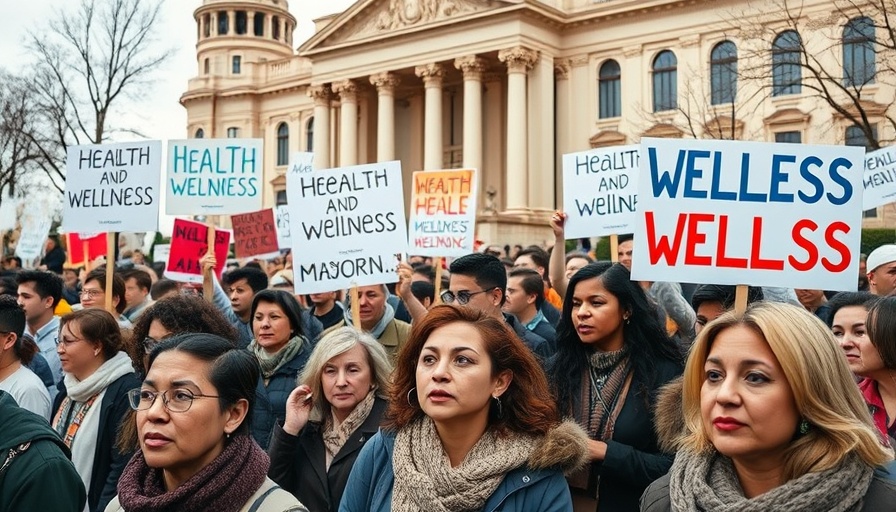
Understanding the Recent Freeze on Title X Funding
The Trump administration's decision to freeze Title X funding has sent ripples through various health organizations across the United States, sparking concern about the impact on reproductive health services. Title X, established in 1970, is a federal program that supports family planning initiatives and plays a critical role in providing low-income individuals with access to essential health services, including birth control and annual check-ups.
The Impact on Healthcare Access
For many, the freezing of Title X funds poses significant barriers to accessing reproductive healthcare. As reported, the 16 organizations affected by these cuts are essential for providing services in underserved areas. When funding is pulled from these organizations, it jeopardizes the availability of health resources vital for community well-being. In regions with limited access to alternatives, families may find themselves without crucial health services, leading to broader public health implications.
Connecting Reproductive Health and Community Wellness
Access to reproductive health services is deeply intertwined with overall community health and wellness. As campaigns for optimal health and wellness grow, it is crucial to understand that reproductive rights are a fundamental aspect of health equity. Loss of funding can exacerbate existing disparities, further marginalizing those already facing challenges in accessing healthcare. Organizations that rely on Title X funding often provide educational resources, create community connections, and promote preventative healthcare—the core tenets of public health.
A Look at Health Trends in San Antonio
In San Antonio, local health and wellness initiatives face potential disruption as Title X funding suspension may affect various health services within the city. San Antonio has continually focused on enhancing community health through wellness centers and local events aimed at improving population health. Local health professionals and wellness advocates are raising their voices to emphasize the need for sustained funding to ensure that essential services remain accessible to all citizens.
Future Predictions and Opportunities
As the health landscape continues to evolve, how states and local governments respond to the crisis caused by the funding freeze will be pivotal in shaping futures. Now more than ever, health and wellness organizations must advocate for policies that support, rather than hinder, access to reproductive health services. This funding freeze could serve as a catalyst for community-driven initiatives and highlight the need to seek alternative funding avenues to maintain services.
Actionable Steps for Community Engagement
Community members can play a vital role in advocating for reproductive health rights. Engagement can take many forms, from attending town hall meetings to participating in local health and wellness events aimed at raising awareness about the challenges posed by funding cuts. Through grassroots organizing, people can influence policy in ways that support access to health care as a human right.
Conclusion: The Call to Action
As we've seen through the lens of Title X funding cuts, access to reproductive health is not just a personal issue—it's a community issue affecting us all. Communities must rally together to support health and wellness initiatives that ensure everyone has access to reproductive health services. Engage in discussions, stay informed, and participate in local advocacy efforts to protect and expand access to essential health services. The future of health and wellness depends on us!
 Add Row
Add Row  Add
Add 




 Add Row
Add Row  Add
Add 


Write A Comment